Making a Better World | Basic Research and Discovery

All the MIT SHASS disciplines conduct basic research
Discovery-driven research is the currency of human progress. Research expands our shared body of knowledge, and it handsomely returns society’s investment by generating new knowledge that expands and sometimes fundamentally changes our understanding of ourselves and the world. All the MIT SHASS disciplines conduct basic research, and champion the importance of basic research to society as a whole.
Empowering every MIT student
MIT SHASS faculty also teach every MIT undergraduate. By empowering MIT students with political, economic, cultural, and historical perspectives — as well as skills in critical thinking, languages, and communication — the School increases the capacity of every MIT graduate to serve the world well, across the broad range of humanity's challenges.
Selected Stories
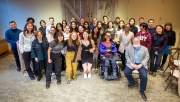
Burchard Scholars gather to network, connect, and learn
The Burchard Scholars dinner series helps create conversations between academic disciplines.
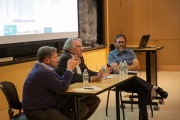
A civil discourse on climate change
The forum is the first in a series planned at MIT this year, part of an initiative meant to encourage the open exchange of ideas.

RESEARCH
How young children communicate could reveal fundamental truths about the nature of conversation
MIT experts in early language development corroborate a long-debated theory about presupposed content in sentences
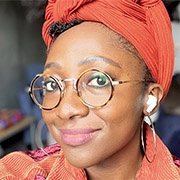
NEW RESEARCH FELLOWSHIP
New Shapiro Graduate Fellowship supports research on the History of the African-American Experience of Technology
HASTS PhD student Kelcey Gibbons is the inaugural recipient.
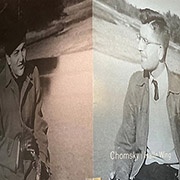
TRIBUTES + THE FUTURE
Linguistics luminaries Chomsky and Halle honored
A Stata Center wing celebrates their achievements— and the next generation of linguistics research at MIT.

BASIC RESEARCH | LITERATURE
A Portal to Another World: Arthur Bahr and the 14th Century Pearl-Manuscript
"Pearl is my favorite poem in the world,” says Bahr, a professor of literature at MIT. “Its form is simply exquisite, and the story itself is bittersweet.” He adds that "the Pearl-Manuscript as a whole serves as “a useful reminder that seriousness of moral and theological purpose can coexist with vivacity and verve and fun."
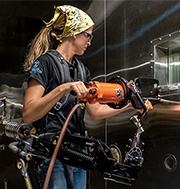
WORK OF THE FUTURE
MIT Economics receives Hewlett Foundation grant to study job quality
Shaping the Future of Work Program will advance research agenda and increase multi-disciplinary cooperation: The program "will analyze forces contributing to the erosion of job quality and labor market opportunity for workers without college degrees...and consider institutional, technological, and policy innovations that can change this trajectory."

AWARDS AND HONORS
Three MIT SHASS faculty receive inaugural Fang Fund awards
Funding will support projects by Fotini Christia (political science); Martin Hackl (linguistics); and Graham Jones (anthropology).
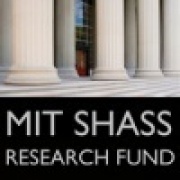
HONORS AND AWARDS
Six faculty receive MIT SHASS Research Fund awards for 2022
The SHASS Research Fund supports research in the Institute's humanities, arts, and social science fields that shows promise of making an important contribution to the proposed area of activity.
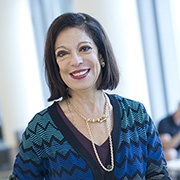
SOLVING CLIMATE
Can the world change course on climate?
A Conversation with Professor Nazli Choucri
MIT Political scientist Choucri discusses challenges and hopes for global coordination on sustainability and climate issues — and the role of political science in the process.
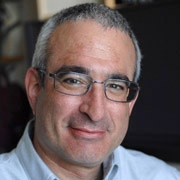
ECONOMICS
Joshua Angrist wins the 2021 Nobel Prize in Economic Sciences
Cited for work building the foundations of “natural experiments” in economic research, Angrist shares the Sveriges Riksbank Prize in Economic Sciences in Memory of Alfred Nobel with with David Card and Guido Imbens.

STRENGTHENING DEMOCRACY
The miracle and tragedy of the 2020 election
Professors Charles Stewart III, MIT, and Nathaniel Persily, Stanford
In a must-read analysis, two of the Nation's leading election administration experts discuss: how, during a pandemic, U.S. election administrators organized the most secure election in American history; the "big lie" that catalyzed violence at the Capitol; and current threats to U.S. voting rights and democracy.

HONORS AND AWARDS
In Song Kim receives the 2021 Levitan Prize
New project by the inventor of LobbyView.org will advance trade theory and the ability of citizens to influence public policy-making.
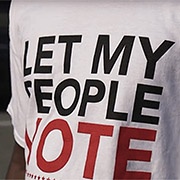
MAKING A JUST SOCIETY
3 Questions: Ariel White on voter rights and re-enfranchisement
"The problems in the Florida case have drawn our attention to how widespread, how life-disrupting, and how racially-disparate the experience of legal debt is for people who have passed through the criminal legal system."
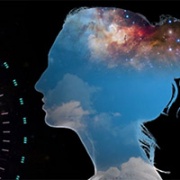
COMPUTING AND AI | HUMANISTIC PERSEPCTIVES FROM MIT
Computing and AI: Humanistic Perspectives from MIT
"With a sense of promise and urgency, we are embarked at MIT on an accelerated effort to more fully integrate the humanistic and technical forms of discovery in our curriculum and research, in our institutional structure, and in our habits of mind and action."
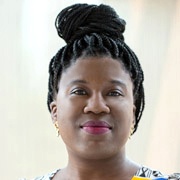
INNOVATION
3Q with Sandy Alexandre: On the literary roots of many technological innovations
In 2019, Alexandre was awarded a prestigious Bose Research Grant, which supports her study of the under-explored phenomenon of ideas that first appear in speculative fiction becoming technological and social reality.
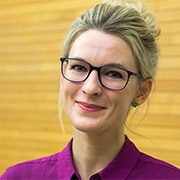
CLIMATE 2020
Amy Moran-Thomas receives the 2020 Levitan Prize in the Humanities
The award will support her in-progress book, Mine: A Family History of Place, Race, and Planetary Health, which will "excavate the cultural histories and everyday social fabrics behind the deep sedimentation of American generational identities and fossil fuel legacies.”
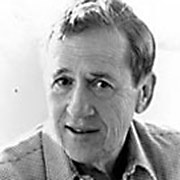
CELEBRATING SCHOLARSHIP
Celebrating Leo Marx on his 100th birthday
Over 40 years, the influential historian helped build MIT's Program in Science, Technology, and Society into a world leader in the field.
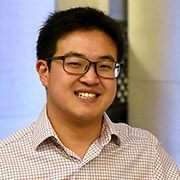
MEET OUR DOCTORAL STUDENTS
Meet Timothy Loh, doctoral student in the MIT HASTS program
“MIT is the best place to be an anthropologist studying issues of science and technology. It’s a place where we’re able to think deeply and critically about how scientific knowledge and authority is constructed."
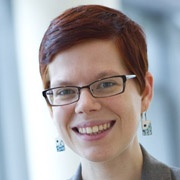
VOTING AND DEMOCRACY
3Q: Ariel White on the impact of incarceration on voting
"The story here is not just about whether people are legally allowed to vote, but about whether they are practically able to vote, whether they know they're allowed to vote, and whether they think they have any reason to do so."
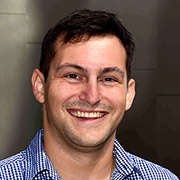
VOICES OF MIT SHASS GRADUATE STUDENTS
Meet Marc Aidinoff, PhD candidate
"What does it mean when civil rights become about access to computers and the Internet? When lack of Internet access is considered a form of poverty? These questions were getting under my skin. I wanted to know how social and economic policy were tied to changing ideas about technology."

COMPUTING AND AI: HUMANISTIC PERSPECTIVES FROM MIT
Political Science | Faculty of the Department
"The advance of computation gives rise to a number of conceptual and normative questions that are political, rather than ethical, in character. Political science and theory have a significant role in addressing such questions as: How do major players in the technology sector seek to legitimate their authority to make decisions that affect us all? And where should that authority actually reside in a democratic polity?"
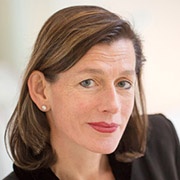
DEMOCRACY AND DISCOURSE
3 Questions: Media historian Heather Hendershot on U.S. political discourse
Media historian and expert on conservatism discusses the current state of political discourse and media in the U.S.
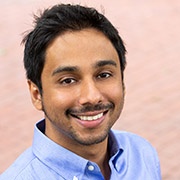
Dwaipayan Banerjee receives 2019 Levitan Prize in the Humanities
$29,500 award will support research for "A Counter History of Computing in India."
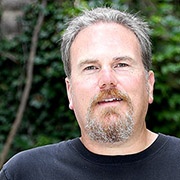
MIT HiSTORY SERIES ON DIGITAL HUMANITIES | 3
Computation and the practice of 21st-century history
In a talk at MIT, Professor William J. Turkel, PhD'04, described the techniques and tools he uses in his study of global21st-century history.
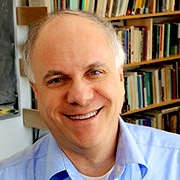
3 Questions: David Pesetsky on the field of linguistics
Solving language puzzles, linguists shed light on deep properties of the human mind, on language acquisition in children, on machine learning, social interactions, and meaning itself. David Pesetsky, an internationally acclaimed linguistic scholar, is the Ferrari P. Ward Professor of Modern Languages and Linguistics at MIT.

MIT HiSTORY SERIES ON DIGITAL HUMANITIES | 1
Talk by Cameron Blevins launches MIT Digital History Seminar Series
“This seminar series is part of our ongoing exploration of computational methods and digital media for research and teaching in the history field. Writ large, this new series is a space for us to reflect on our engagement with the new MIT Schwarzman College of Computing" — Jeffrey Ravel, head of MIT History
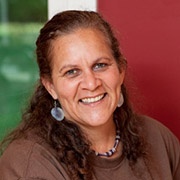
Jessie Little Doe Baird SM'00 receives 2010 MacArthur Fellowship
Award honors her work to revive Wampanoag (Wôpanâak), a language once spoken by tens of thousands of people, which became extinct in the 19th century.

MIT ranked No.2 university worldwide for Arts and Humanities - 2019
MIT has been rated No.2 worldwide in the "Arts and Humanities" subject category in the 2019 Times Higher Education World University Rankings. The ranking is based on an evaluation of the disciplines located in the MIT School of Humanities, Arts, and Social Sciences — and in the MIT School of Architecture and Planning.
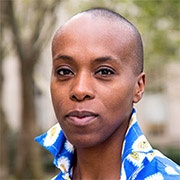
3 Questions with M. Amah Edoh
On Africa and Innovation
"Africa today is seen as the future of global innovation and entrepreneurship in areas from technology to the arts. Important questions about Africa’s new visibility include: Who is recognized as an expert? What is seen as innovative, and what knowledge is considered worth carrying forward? Who gets to be the face of this 'New Africa'?"
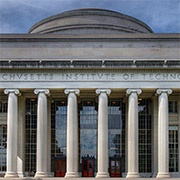
MIT ranked No. 1 university worldwide for Economics and Business - 2019
The Times Higher Education World University Ranking system determines a university’s quality in a given subject area by examining five areas: the learning environment; the volume, income, and reputation of its research; the influence of its citations in other research; the international outlook of its staff, students, and research; and its knowledge transfer to various industries.
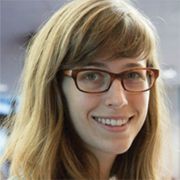
BASIC RESEARCH | ARTS INNOVATION
What Paris shows us about photography
In The Cliché of History, Catherine Clark develops a new narrative about photography and how it influences history, memory, and identity.
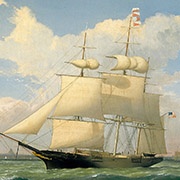
Q&A with historian Anne McCants
About the World Economic History Congress at MIT
"This strikes me as exactly the moment when the work of economic historians is of greatest importance. We have something useful to say about what the disruptions of previous 'waves of globalization' have looked like and how social and political communities have resolved the disruptions of those episodes."
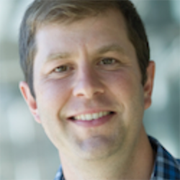
RESEARCH | 21st C. CITIZENSHIP
Study by Devin Caughey demonstrates the people's power.
New study shows that state-level policy in the U.S. is responsive to public opinion.

21st C. CITIZENSHIP | LEGACY OF SLAVERY
The Task of History
MIT historians discuss the power of historical knowledge to help make a better world.
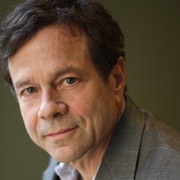
TEACHING AND LEARNING
3 Questions: Alan Lightman on science and the life of the spirit
Lightman's new book, “Searching for Stars on an Island in Maine,” examines the tensions between belief and knowing.
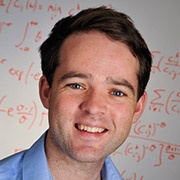
SOCIAL INNOVATION
Economist Dave Donaldson asks: How much does infrastructure boost an economy?
Donaldson's historical study details how railroads helped India trade and grow.
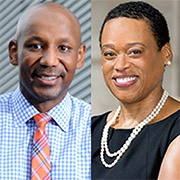
21st C. CITIZENSHIP | LEGACY OF SLAVERY
3Q Interview with Dean Nobles, Professor Wilder
"The MIT community has the opportunity to be involved in this endeavor in real time, learning from the emerging findings. and making informed suggestions to the leadership about potential responses." — Dean Melissa Nobles

MAKING A JUST SOCIETY
MIT and the Legacy of Slavery Project
Stories, Videos, Community Dialogue
“I believe the work of this class is important to the present — and to the future. Something I have always loved about the MIT community is that we seek, and we face, facts. What can history teach us now, as we work to invent the future? How can we make sure that the technologies we invent will contribute to making a better world for all?" — L. Rafael Reif, President of MIT
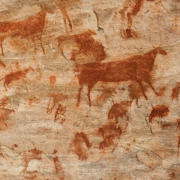
BASIC RESEARCH
The writing on the wall
Did humans speak through cave art? New paper by MIT linguist links ancient drawings and language’s origins.
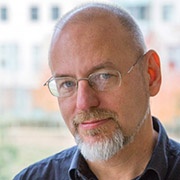
SOCIAL INNOVATION
Anthropologist Stephan Helmreich conducts fieldwork aboard the FLIP ship
As part of his ongoing research on how scientists think about the world, Helmreich wanted to know: What are the changing theories, models, and technologies that physical oceanographers use to apprehend and understand waves?
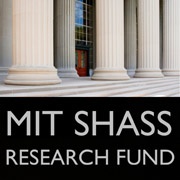
BASIC RESEARCH
SHASS announces 10 Research Fund recipients for 2018
The SHASS Research Fund supports research in the areas of humanities, arts, and social sciences that shows promise of making an important contribution to the proposed area of activity. The School is pleased to announce ten recipients for 2018.
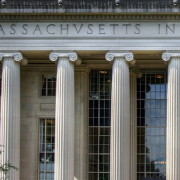
CORE
MIT named No. 2 university worldwide for the Arts and Humanities - 2018
At MIT, two schools — the School of Architecture and Planning, and the School of Humanities, Arts, and Social Sciences — and several centers are home to the arts and humanities.

PLANETARY HEALTH
Citizen Science and the Wild workshop illuminates the value of multidisciplinary research.
Convened by MIT historian Harriet Ritvo, the workshop drew an unusual variety of MIT experts together, including historians of science, anthropologists, scientists, and museum professionals.
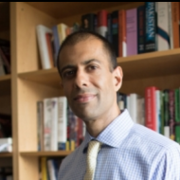
21st C. CITIZENSHIP | BASIC RESEARCH
Making sense of nuclear threats
MIT political scientist Vipin Narang explains the strategies of new nuclear powers. “We’re not talking about Cold War nuclear strategy any more. We’re talking about small states with small arsenals and itchy trigger fingers. It really changes how we think about nuclear risks and nuclear dangers as a result.”

BASIC RESEARCH
Song of the Human: A musical work inspired by Shigeru Miyagawa's research
New work by composer Pete M. Wyer draws inspiration from MIT linguistic scholar Shigeru Miyagawa's hypothesis on the origins of human language: "Human speech can be quite musical — there's pitch, rhythm, tone and dynamics — and if one removes words, what's left is the song of the human, and it's remarkably similar to birdsong."
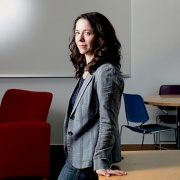
BASIC RESEARCH
What we're doing when we try to live our lives well
Philosopher Tamar Schapiro studies how we blend reason and emotion while refining our adult selves.

3 Questions with philosopher Kieran Setiya
How philosophy helps us address climate change
"Almost anyone engaged with global issues of human well-being, the distribution of resources, or the future of society is doing moral philosophy Even the most technocratic assessment of costs and benefits makes assumptions about the value of human life and the demands of justice....Making our ethics more explicit, being self-conscious about our principles and premises, improves our moral thinking. This is particularly true when the questions are ones of public policy."
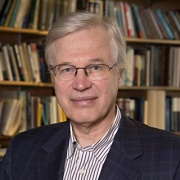
BASIC RESEARCH
Professor Bengt Holmström wins 2016 Nobel Prize in Economics
The 2016 Nobel Prize in Economic Sciences has been awarded to MIT's Bengt Holmström and Harvard's Olvier Hart for their contributions to contract theory. Holmström is the Paul A. Samuelson Professor of Economics in the MIT SHASS Department of Economics, with a joint appointment in the Sloan School.
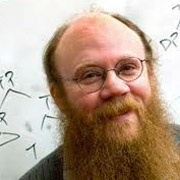
BASIC RESEARCH
Norvin Richards explores how our voices shape the rules of grammar
Linguists who study syntax have catalogued myriad distinguishing rules and patterns among world languages — without necessarily explaining why such differences exist. But now Richards has a new explanation, detailed in his book, Contiguity Theory, recently published by the MIT Press.

BASIC RESEARCH
Via IDSS, Christia and Jadbabaie collaborate on study of sociopolitical change
With the new Institute for Data, Systems, and Society (IDSS), MIT researchers in the social sciences have an official research platform for collaborating with peers in engineering and the sciences. In this project, social scientist Fotini Christia and civil engineer Ali Jadbabaie join forces to study the evolution of cultural norms and the dynamics of sociopolitical change.

BASIC RESEARCH
Why children confuse "and" with "or"
A study co-authored by MIT linguists concludes that children deploy a more sophisticated mode of logical analysis than many experts have previously realized.
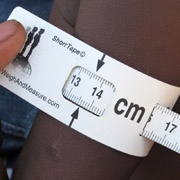
GLOBAL HEALTH AND POVERTY ALLEVIATION
A Sampler of Health Sector projects
Abdul Latif Jameel Poverty Action Lab at MIT
J-PAL’s Health sector aims to encourage health-promoting behaviors and improve the delivery of health care services, as well as to better understand the impact of health care on reducing poverty.
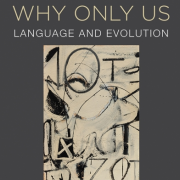
BASIC RESEARCH
Code of the humans
New book by Noam Chomsky and Robert Berwick explores how people acquired unique language skills.
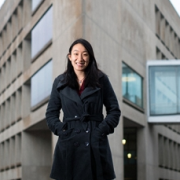
CORE | BASIC RESEARCH
MIT senior takes on double major in brain and cognitive sciences plus theater arts
Abra Shen pursues medicine and theater, and someday hopes to combine the two.
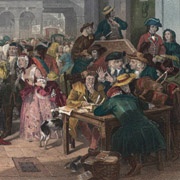
BASIC RESEARCH: HISTORY OF SCIENCE
Thomas Levenson receives the 2016 Levitan Prize in the Humanities
Levenson, professor of science writing and director of MIT’s Graduate Program in Science Writing, has been awarded the $30,000 research grant, which will support his investigation into the economic, cultural, and scientific history of an 18th century financial crisis known as the South Sea Bubble.
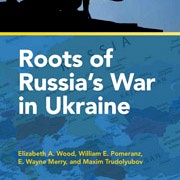
BASIC RESEARCH
Elizabeth Wood: The Roots of the Ukraine Crisis
In February 2014, Russian troops rolled into Crimea, the garden spot of Ukraine, and seized control, shocking the international community. MIT Professor Elizabeth A. Wood’s new book asks why Russia annexed this peninsula, plumbing the depths of history to explain Russia’s current posture on the world stage.

BASIC RESEARCH + CORE
MIT named among three top universities in the world for humanities, arts
The Times Higher Education 2015 World University Rankings has named MIT one of the top three universities worldwide for arts and humanities education. The three top ranked universities — Stanford University, Harvard University, and MIT — are closely aligned in the evaluation metrics.
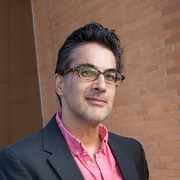
BASIC RESEARCH | ETHICS OF CLIMATE CHANGE
MIT philosopher Kieran Setiya analyzes the sources of moral action
“I really feel compelled right now by questions about climate change ethics … the worry that nothing I do may make a difference, the fact that decisions we’re making in the next generation will affect many billions of humans, or possibly even whether human life will exist in a few hundred years’ time,” Setiya says. “I feel there are very challenging, often upsetting, but unavoidable questions raised there.”
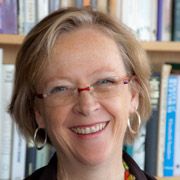
BASIC RESEARCH: HISTORY OF TECHNOLOGY
Deborah Fitzgerald receives lifetime achievement award from Agricultural History Society
Fitzgerald, Professor of the History of Technology, and former Kenan Sahin Dean of MIT-SHASS, has been honored for her research, mentorship, and leadership. In its award citation, the society notes that Fitzgerald's research has articulated "important themes in twentieth century America," and that she has been a central force in furthering the society, cultivating next-generation scholars."
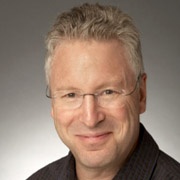
BASIC RESEARCH: HISTORY OF SCIENCE
Tom Levenson discusses his new book, The Hunt for Vulcan
Tom Levenson, Professor of Science Writing and director of MIT’s Graduate Program in Science Writing will give a presentation about his new book The Hunt for Vulcan — the planet that was repeatedly discovered (although it did not exist).
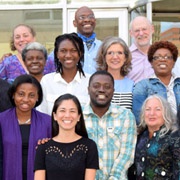
RESEARCH TO POLICY: EDUCATION
Haitian educators and MIT faculty develop Kreyòl-based teaching tools
Six veteran educators from Haiti — two biologists, two physicists, and two mathematicians — were on campus recently to work closely with MIT faculty to develop and hone Kreyòl-based, technology-enhanced pedagogical tools for STEM education.
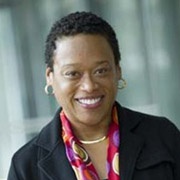
RESEARCH TO POLICY | ADVANCING JUSTICE
3 Questions | Melissa Nobles on advancing racial and restorative justice
Melissa Nobles, Dean of the MIT School of Humanities, Arts, and Social Sciences, and Professor of Political Science, researches historical injustices in democracies. MIT SHASS Communications spoke with Nobles in 2015 about the ongoing aftermath of shooting deaths in Ferguson, New York, and Cleveland, and what her research suggests about the current efforts to advance civil rights in America.
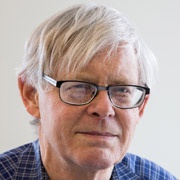
BASIC RESEARCH: THOUGHT AND DECISION-MAKING
Philosopher Robert Stalnaker solves problems the MIT way
Focus on real-world concerns underpins research in areas including game theory, linguistics, decision theory, and economics.
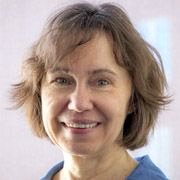
BASIC RESEARCH: LANGUAGE
Donca Steriade: Searching for the building blocks of language
The syllable has long been considered to be the basic building block of language in the area of rhythm. MIT's Donca Steriade now believes that that different element — known as the "interval" — may be the basic unit of rhythm in human language.
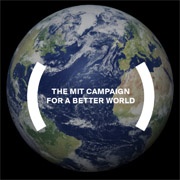
The MIT Campaign for a Better World
Announcing the new comprehensive campaign, MIT President L. Rafael Reif said, "Humanity faces urgent challenges — challenges whose solutions depend on marrying advanced technical and scientific capabilities with a deep understanding of the world's political, cultural, and economic complexities."
Discover the role of MIT's Humanities, Arts, and Social Sciences fields in solving the economic, cultural, and political dimensions of global issues, and in problem-solving in collaboration with our STEM colleagues.
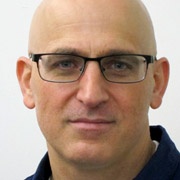
BASIC RESEARCH: LANGUAGE AND MIND
MIT linguist Danny Fox named Anshen-Chomsky Professor of Language and Thought
Fox does research that illuminates both language and the mind itself. "He belongs to the rare breed of researchers who not only discover remarkable new facts about language, but also has the vision to see what these discoveries are teaching us about the mind as a whole, about the structure of language as a part of the human mind, and about the internal workings of language itself." — David Pesetsky, Head, MIT Philosophy and Linguistics
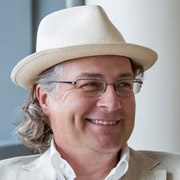
BASIC RESEARCH: LANGUAGE AND MEANING
Kai von Fintel: Decoding the Meaning of Language
"What makes linguistics, the science of language, so fascinating, von Fintel says, "is that it exists at the intersection of science and the humanities." You use a scientific approach, and you get to apply it to something central to humanity."
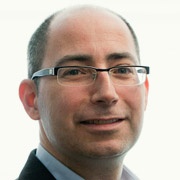
BASIC RESEARCH: HISTORY OF SCIENCE
David Kaiser awarded the Davis Prize from the History of Science Society
The History of Science Society has awarded the Watson Davis and Helen Miles Davis Prize to MIT historian and physicist David Kaiser for his book How the Hippies Saved Physics: Science, Counterculture, and the Quantum Revival (W. W. Norton, 2011).
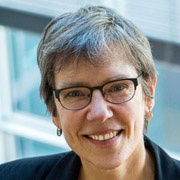
MAKING A JUST SOCIETY
Q&A with Philosopher Sally Haslanger: What is "natural," and what is "social?"
Professor of philosophy and Director of Women's and Gender Studies at MIT, Sally Haslanger recently published Resisting Reality: Social Construction and Social Critique (Oxford University Press), a collection of essays on gender and race. We caught up with her to talk about the rich ideas in her most recent book.

BASIC RESEARCH
Rosalind Williams: on the "Human Empire"
An historian who finds evidence and insight in literature, Rosalind Williams, Dibner Professor of the History of Science and Technology, recently completed a book examining the critical juncture when human endeavors began to dominate the planet as never before. Forthcoming from the University of Chicago Press (2013), The Triumph of Human Empire, explores this turning point in history and technology through the works of three writers from the late 1800s.
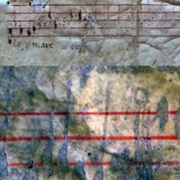
INNOVATION/RESEARCH: MUSIC21 TOOLS
Cuthbert receives $500K Digging into Data grant for innovative musicology tools
Associate Professor of Music Michael Cuthbert, together with an international team of researchers, has been awarded a $500K grant from the Digging into Data consortium (including $175K from the National Endowment for the Humanities). The grant supports his for work using computational techniques to study changes in Western musical style.
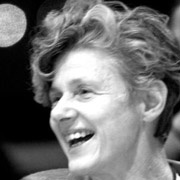
BASIC RESEARCH
Scientific Reunion commemorates 50 years of Linguistics at MIT
To celebrate the first 50 years of MIT’s graduate program in Linguistics, alumni, former faculty and postdoctoral scholars attended a Scientific Reunion, held at MIT on December 9-11, 2011, and participated in a discussion of some of the foundational questions investigated by its past and present members. Professor David Pesetsky writes, "Intellectually, it was first-rate and exciting; there were some fireworks (just as we'd hoped). It was also a very emotional weekend. Collectively, this was the group that built the field."

RESEARCH
SHASS stories on MIT News
The MIT News stories about SHASS research, awards, and creative works are primarily written by Peter Dizikes, Institute Writer for MIT News. The collected publications on this webpage also include some selected stories, which appear on MIT News, written by the SHASS academic units and by the SHASS Communications group in the Office of the Dean.

RESEARCH TO POLICY: HEALTH INSURANCE
MIT economists Finkelstein and Gruber demonstrate the health and financial benefits of Medicaid
Landmark study shows the effects of health insurance program: much better health and more financial stability for the poor; more bills paid for hospitals and doctors. Professors of Economics Amy Finkelstein (a principal investigator) and Jonathan Gruber contributed to the study.
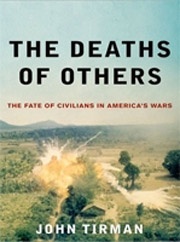
RESEARCH TO POLICY: CIVILIANS IN WARFARE
In The Deaths of Others, John Tirman explores fate of civilians in America's wars
Americans are greatly concerned about the number of our troops killed in battle — 100,000 dead in World War I; 300,000 in World War II; 33,000 in the Korean War; 58,000 in Vietnam; 4,500 in Iraq; more than 1,000 in Afghanistan — and rightly so. But why are we so indifferent, often oblivious, to the far greater number of casualties suffered by those we fight and those we fight for? This is the compelling, largely unasked question that John Tirman, a principal research scientist and executive director at the MIT Center for International Studies, answers in The Deaths of Others.
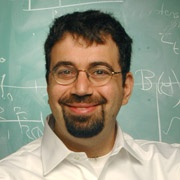
RESEARCH TO POLICY: ECONOMIC STABILITY
MIT economist Daron Acemoglu on inequality and the financial crash
This excellent podcast interview with Daron Acemoglu, Charles P. Kindleberger Professor of Economics, examines the role of income inequality in the financial crash.

BASIC RESEARCH: LANGUAGE AND MIND
Q&A with Linguist David Pesetsky
Why is the idea of Universal Grammar controversial? What does linguistics tell us about how we think? — Q&A with David Pesetsky, Ferrari P. Ward Professor of Modern Languages and Linguistics, and Fellow of the American Association for the Advancement of Science

RESEARCH TO POLICY: ECONOMICS
Economics Symposium launches MIT's 150th celebration
This symposium, organized by the School's Department of Economics and the Sloan School of Management, celebrated the role of MIT’s faculty and students in advancing the fields of economics and finance, in putting the latest developments into practice, and in contributing to the design of public policy.
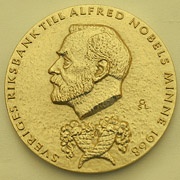
RESEARCH TO POLICY: ECONOMIC INNOVATION
Peter Diamond receives Nobel in Sweden
Institute Professor Peter Diamond PhD ’63 will collect the Nobel Prize in economics on Friday, Dec. 10, during a ceremony at the Stockholm Concert Hall in Sweden. Diamond, Dale T. Mortensen of Northwestern University and Christopher A. Pissarides of the London School of Economics won the prize for their analysis of “markets with search frictions,” which roughly equates to any setting in which buyers and sellers don’t easily find one another.
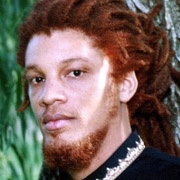
BASIC RESEARCH: ART/TECH INNOVATION
Harrell convenes thought-leaders to catalyze new research informed by science, humanities, and arts disciplines.
Bringing together the resources of the National Science Foundation (NSF) and the National Endowment for the Arts (NEA) Associate Professor Fox Harrell has led a joint workshop focused on research informed by both the arts and sciences. 55 thought leaders gathered to explore the goal of using technology to better understand society—and using the humanities and arts to build creative computational systems.

DEMOCRACY | AMERICAN HISTORY
Maier's Ratification delivers new knowledge about the adoption of the US Constitution, the most consequential debate in American history
"A stunning examination of... 'the beginning of American national politics' — the debate that explains the way we Americans govern ourselves, resolve disputes, conduct diplomacy, choose leaders and protect our freedoms."
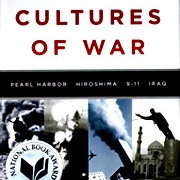
BASIC RESEARCH | HISTORY OF CONFLICT
Dower's Cultures of War is 2010 National Book Award finalist
Over recent decades, Pulitzer-winning historian John W. Dower has addressed the roots and consequences of war from multiple perspectives. Here he examines the cultures of war revealed by four powerful events—Pearl Harbor, Hiroshima, 9-11, and the invasion of Iraq in the name of a war on terror.

BASIC RESEARCH: TECHNOLOGY AND HUMAN IDENTITY
Objects and Identity: Sherry Turkle's Research
"In 1976, when Sherry Turkle arrived at MIT to teach the sociology of science, she quickly noticed how the still-new computer was becoming part of the fabric and language of daily life. When she probed deeper, she found 'there was a real passionate attachment to the computer, a possibility to project yourself into the machine.' Within that, Turkle, a psychologist as well as a professor, saw bigger questions about how that might change our very sense of self-identity."
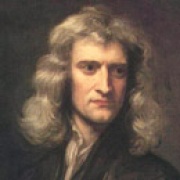
BASIC RESEARCH: HISTORY OF SCIENCE
Newton and the Counterfeiter
Boston Globe on Levenson's new book
"MIT professor Thomas Levenson has written a page-turner about Isaac Newton's mind at work, Newton and the Counterfeiter: The Unknown Detective Career of the World's Greatest Scientist (Houghton Mifflin Harcourt). In a little known episode, Newton was tapped to manage England's Royal Mint at a time when the preponderance of fake money in circulation caused a financial crisis.
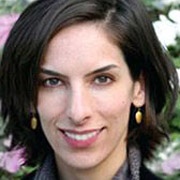
RESEARCH TO POLICY: ADDICTION
Natasha Schull examines technology and gambling addiction
Natasha Schull, Assistant Professor in the Program in Science, Technology, and Society, observed that gamblers become transfixed for hours at video poker and slot machines. What, she wondered, kept them glued to machines until they lost all they had to lose? Schull is publishing her conclusions that proprietary mathematical algorithms and immersive technology are used to keep people gambling until they—in the industry jargon—"play to extinction."

BASIC RESEARCH
MIT's philosophers release eight books this year
It's unusual for philosophers to publish many books these days — major papers are the more typical way to publish research — which is why the publication of eight books by eight of the 12 MIT philosophy faculty in the span of a year marks a noteworthy chapter for the Institute's philosophy section.
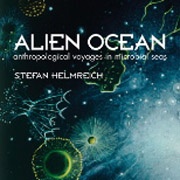
BASIC RESEARCH | CULTURE OF SCIENCE
"Alien Ocean" explores the world of marine microbiologists
When Professor of Anthropology Stefan Helmreich set out to examine the world of marine microbiologists for a new book, his research took an unexpected twist. Helmreich, who has been recognized for his innovative cultural anthropology work, had decided to study scientists who chase some of the world's smallest creatures in some of the world's most forbidding places. So he spent long hours interviewing microbial biologists. But during the years of Helmreich's research, the entire field shifted gears.